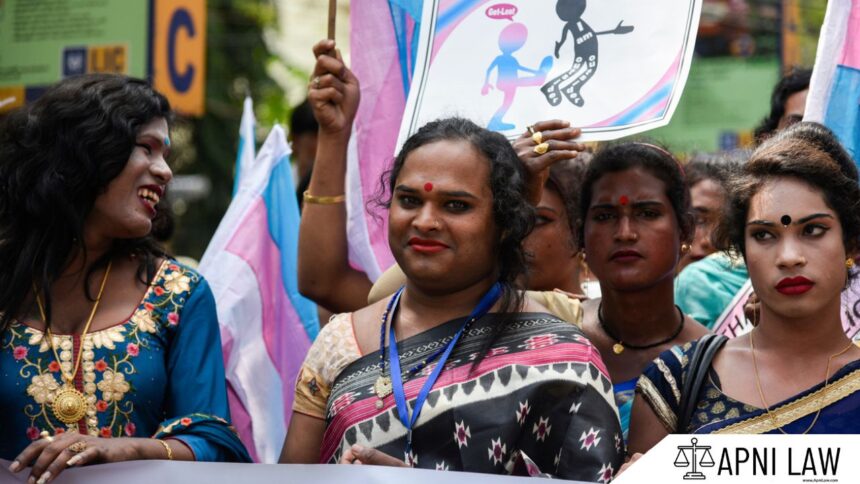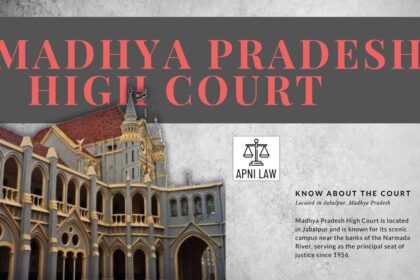Introduction
India’s legal landscape has undergone a transformative shift with landmark judgments that uphold the rights and dignity of transgender individuals. Through pivotal court cases, the judiciary has reaffirmed constitutional guarantees such as the right to equality, non-discrimination, and the freedom to self-identify one’s gender. These rulings have played a crucial role in challenging societal norms, ensuring legal recognition for the ‘third gender’, and promoting affirmative action in education, employment, and healthcare. From the historic NALSA v. Union of India to the empowering G. Nagalakshmi v. Director General of Police, these cases have laid the foundation for an inclusive and rights-based approach to gender identity in India.
NALSA vs Union of India
The National Legal Services Authority (NALSA) vs Union of India the case marked a turning point in the recognition of transgender rights in India. NALSA, alongside social activists like Laxmi Narayan Tripathi and welfare groups, petitioned the Supreme Court to seek legal recognition and constitutional protection for transgender individuals. The petitioners argued that those who do not identify strictly as male or female face widespread discrimination in education, employment, healthcare, and social interactions. They raised key constitutional issues, including the right to legal recognition as a ‘third gender’, violation of fundamental rights under Articles 14, 15, 16, and 21, and the need for affirmative action for the transgender community.
In a historic 2014 judgment, the Supreme Court declared transgender individuals as the ‘third gender’ under the Constitution. The bench, comprising Justices K.S. Radhakrishnan and A.K. Sikri, upheld the right to self-identify one’s gender as part of personal dignity and autonomy. The Court ruled that denying gender identity violates the right to equality, freedom from discrimination, and the right to life with dignity. It directed the Union and State Governments to ensure affirmative action, including reservations in education and employment, healthcare access, and legal protections. The ruling emphasized inclusive welfare schemes and mandated the creation of separate restroom facilities and social safety measures for the transgender community, ensuring their full participation in public life.
G. Nagalakshmi v Director General of Police
G. Nagalakshmi was born, raised, educated, and recognized by family, society, and government authorities as a woman. She was selected and appointed in February 2013 as a Woman Police Constable in Tamil Nadu, following due process that included a routine medical examination certifying her female gender. After joining training, she underwent another medical check-up, after which doctors at Villupuram Medical College labeled her a “pseudo-hermaphrodite” or “transsexual.” This medical classification led police authorities to press her into submitting a resignation letter, allegedly citing chest pain, which she later contested as coerced given her socio-economic background.
The Madras High Court addressed whether Nagalakshmi had the right to her self-identified gender and whether her resignation letter was voluntary. Drawing heavily on the Supreme Court’s NALSA decision, the Court affirmed that in the absence of specific legislation, transgender or intersex individuals retain the constitutional right to self-identify their gender. Additionally, the court found her resignation was not voluntary but the product of emotional coercion, and hence struck down the acceptance of her resignation.
Justice S. Nagamuthu’s ruling declared:
- Nagalakshmi’s self-identification as a female is constitutionally valid.
- The forced “resignation” constituted an infringement of her fundamental rights.
- She must be reinstated and allowed to complete her training as a Woman Police Constable, with service continuity, albeit without back wages
Arun Kumar & Others v. Inspector General of Registration, 2021
In a groundbreaking April 22, 2019 judgment by the Madurai Bench, Madras High Court, Justice G.R. Swaminathan interpreted the term “bride” under Section 5 of the Hindu Marriage Act, 1955, to include transgender women. The petitioners, Arun Kumar and Srija, had married in October 2018 according to Hindu rites. Despite completing all formalities, the Registrar denied registration on grounds that “bride” meant cisgender woman. The court held that legal definitions must evolve with modern legal principles, ruling that the term “bride” was not static and must encompass self-identified gender, a right protected by Articles 14, 15, and 21 of the Constitution.
The judgment recognised that denying marriage registration due to gender identity is discriminatory and infringes upon the fundamental rights affirmed by Supreme Court precedents such as NALSA v. Union of India (2014). It reinforced that gender identity is a matter of personal autonomy and dignity, and that the State cannot question a person’s self-determined gender when it comes to contracting marriage. Consequently, the Madras High Court directed registration of Arun Kumar and Srija’s marriage, setting a powerful legal precedent affirming transgender persons’ right to marry under the Hindu Marriage Act.
V. Vasanta Mogli v. State of Telangana (2023)
In the historic case of Vyjayanti Vasanta Mogli v. State of Telangana (decided July 6, 2023), a Telangana High Court Division Bench struck down the Telangana Eunuchs Act, 1329 Fasli (1919), calling it archaic and discriminatory. The Bench concluded that the Act violated Articles 14 (equality) and 21 (life and personal liberty), and intruded on the dignity and privacy of transgender persons by presuming criminality based on gender expression. It marked the legislation as “arbitrary,” stigmatizing an entire community and enabling unwarranted surveillance.
Beyond nullifying the Eunuchs Act, the court mandated actionable reforms, the inclusion of transgender individuals under the Aasara Pension Scheme, the formation of a Transgender Welfare Board with legal services participation, and issuance of administrative orders to implement affirmative reservations in education and government employment for transgender persons. This decision not only dismantled discriminatory colonial-era law but also proactively advanced systemic welfare and upliftment of transgender communities in Telangana.
Conclusion
The Indian judiciary has been instrumental in advancing the rights of transgender and gender non-conforming individuals. These landmark judgments not only provide legal recognition and protection but also pave the way for greater social acceptance and empowerment. By affirming the right to self-identify and mandating equal access to public resources, education, and employment, the courts have established a robust legal framework for transgender justice. As these precedents continue to influence legislation and policy, they signify a broader movement toward gender equality and constitutional inclusion in modern India.








